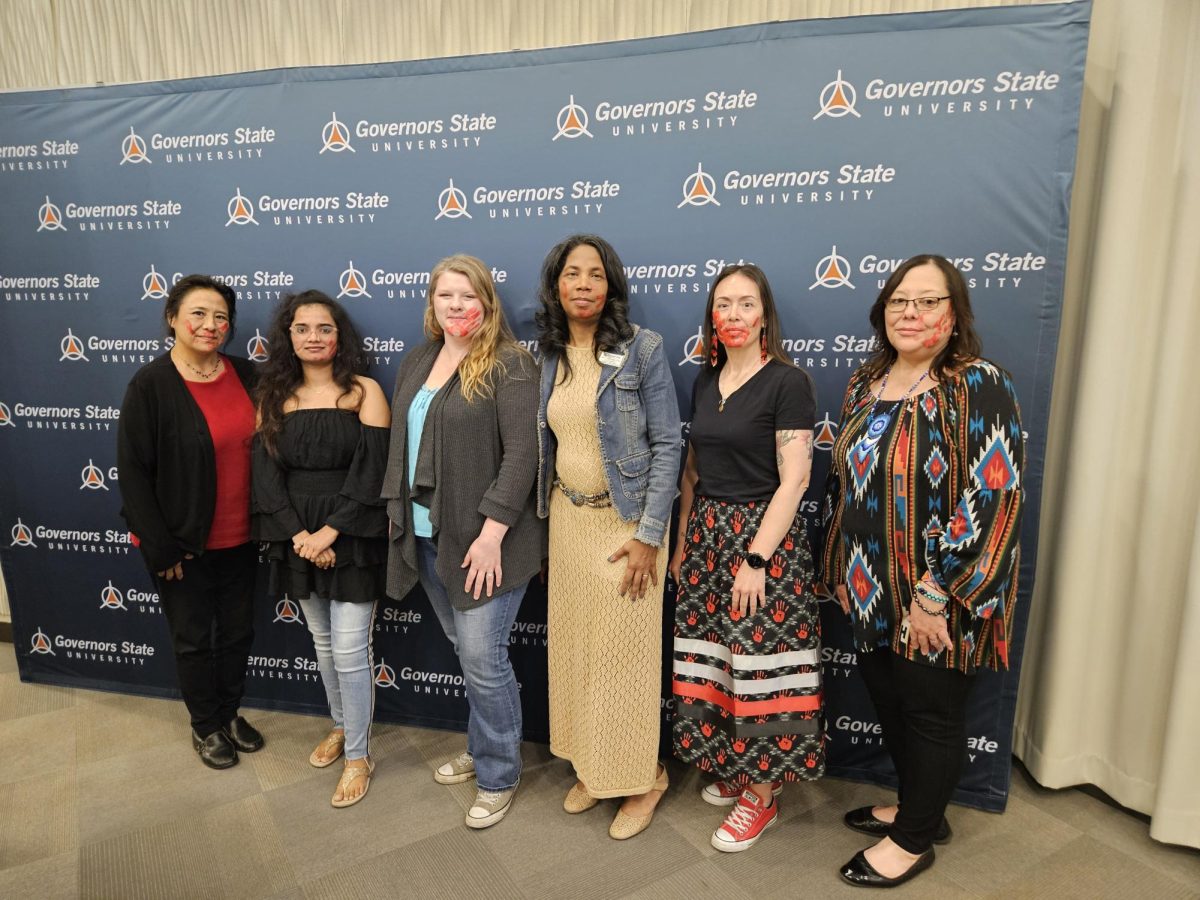On Wednesday, April 30, Governors State University hosted a powerful and emotionally charged event in Engbretson Hall to honor and amplify the voices of Missing and Murdered Indigenous People (MMIP).
The Red Handprint Event, organized by the Office of Institutional Engagement and Excellence in collaboration with the Center for Community Media, brought together students, faculty, and community members in solidarity and reflection.
From 5 to 8 p.m., attendees were immersed in a series of experiences designed to shed light on the ongoing MMIP crisis that disproportionately affects Indigenous women and communities across North America. Central to the event was the red handprint—a potent symbol painted across the mouth to represent silenced voices and the urgency of justice.
As part of the program, participants were invited to place red handprints on their faces, a gesture of solidarity with the victims and families of the MMIP crisis. This act of visual symbolism served as a powerful reminder of the silenced voices the movement seeks to uplift and the critical need to be seen, heard, and remembered.
The evening featured a special screening of the docudrama “She Cried That Day,” a compelling film that debuted at the Big Sky Documentary Film Festival. Directed by Amanda Erickson (a San Carlos Apache of the White-Water Clan), the film shared the deeply personal stories of families and survivors whose lives have been changed forever by violence and loss.
Following the screening, participants took part in an interactive reflection session, where they had the opportunity to share thoughts and responses, fostering community dialogue and emotional connection.
A panel discussion moderated by Lisa Pennington brought further depth to the evening. The panel featured Amanda Erickson, the film’s director; Sarina DiMaso, a counselor and personal fitness trainer; Cydnee Starr (Star Woman), a cultural coordinator; and Jeff Rasmussen, a partnering attorney and public defender. Together, they explored the cultural, legal, and emotional dimensions of the MMIP crisis and emphasized the role of community-led efforts in advancing justice and healing.
Throughout the night, the Red Handprint Event emphasized the critical need to confront this crisis not only with compassion but with action. The organizers stressed the importance of visibility, education, and policy reform to ensure justice for victims and support for their families.
In Amanda Erickson’s words, “We must never forget their names. We must never stop searching. We must never stop fighting.”
By the close of the event, what began as a moment of solemn remembrance transformed into a call for ongoing advocacy. The red handprints on attendees’ faces stood as a living tribute—resolute, visible, and committed to standing with Indigenous communities in the pursuit of justice and healing.

